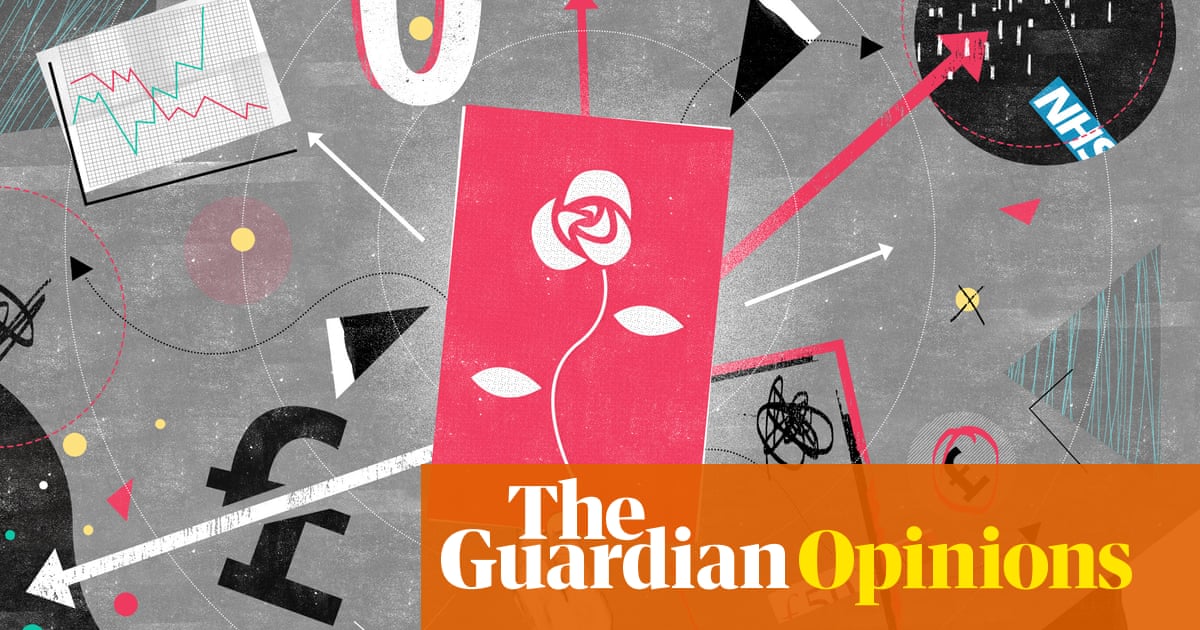
It used to be said that, in their myopia, British voters wanted European levels of public service provision on American levels of taxation. But the recent direction of travel has been towards American levels of public service provision on European levels of taxation. The risk is that tax, as an idea and institution, becomes unmoored in Britain from any lingering social democratic optimism, instead becoming another symptom of national decline.
Against this background, Britain has entered an election year in an unusual position: outside Scotland and Wales, whose devolved governments have limited room for fiscal manoeuvre, all the major political parties are arguing that taxes have risen too high. This isn’t quite the same thing as promising tax cuts, although Jeremy Hunt has made it clear that his spring budget on 6 March will include some of those.
Pressure to reduce the overall level of taxation has been an unrelenting feature of internal Conservative party politics over the course of this parliament, resulting in the surreal rupture of the 45-day Liz Truss premiership, before building up all over again under Rishi Sunak. Labour and the Liberal Democrats take every opportunity to remind voters that taxes on working people are hurting them. When Boris Johnson triumphed at the 2019 election on the promise to “get Brexit done”, Britain could still consider itself a low-tax economy, relative to the OECD average. Its tax rate is now above that average.
This parliament will see the sharpest rise in taxation as a proportion of GDP since official data on tax revenues began, the result being that taxation is now at its highest sustained level (37% of GDP) on record. The reasons for this unprecedented rise are well rehearsed. Covid-19 placed unprecedented strain on the NHS and demands on the public balance sheet that are ordinarily only encountered during wartime. The number of people claiming disability benefit since 2020 has soared, doubling in the year to July 2022 alone, driven especially by mental health conditions among children and young people. To this we can add the symptoms of long-term economic decline: stagnant productivity and wage growth, minimal GDP growth, an ageing population, and a class of high net-worth elites whose primary objective is to insulate family wealth from risk-taking and taxation.
Various taxes have risen to accommodate these crises, but the most significant (accounting for a third of the overall increase) and controversial has been the freezing of income tax bands. In 2021, the government announced that the points at which workers would be charged different marginal tax rates would be frozen for four years (later extended to six years), meaning that inflation would drag a rising share of the workforce into higher bands. With nominal wages rising significantly over the past two years, even when they’ve fallen in real terms because of inflation, this has been a painful experience for many people. Young graduates are now the most highly taxed workers in Britain, thanks to the additional 9% levy on their incomes that is charged to pay off their student “loans”.
Aside from its material impact on working people, this state of affairs has had profound implications for the politics and ideologies that surround tax in the UK. None of the reasons for this rising tax burden are things that anyone would choose or celebrate, but instead reflect the unhappy condition of Britain today. More than any comparator nation, the UK remains weighed down by the legacies of its twin 21st-century crises, financial and health. And the principal means by which this additional revenue has been collected – allowing people to drift into higher tax bands – has never been politically argued for or justified. Instead, like the proverbial frog in heating water, a new fiscal settlement has crept up on us. Hunt’s desperate attempts to portray himself as a tax-cutter akin to Nigel Lawson will win a couple of headlines in sympathetic papers, but won’t change the underlying reality.
When an economy scarcely grows but the demands on the state escalate sharply, something has to give. This has been deeply disorientating for the Conservative party. At least in theory, the Truss programme offered a route out of this fiscal bind, seeking to stimulate growth through sudden supply-side tax cuts, until eventually tax revenues rose. We know how that ended. No doubt there is an even more libertarian wing of the Conservative party, not to mention its allied thinktanks and donors, that would respond to the impasse by significantly shrinking the state’s commitments to sick and disabled people. But beating up on the NHS is not a realistic electoral strategy for the Tories, who are in effect now the English pensioners’ party.
For Labour, the diffuse sense of tax as a weight around voters’ necks is even more ideologically challenging. New Labour was famously coy about proclaiming the argument in favour of taxation, but nevertheless it did happen. The 1997 “windfall tax” on privatised utilities was earmarked to pay for the “new deal” to tackle long-term unemployment. To great fanfare in 2002, Gordon Brown announced a 1% rise in national insurance to go directly to the NHS. And in 2010, in the fiscal wreckage left by the banking crisis, Labour introduced a new 50p income tax rate. The left always pushed for more, but the sense that taxation was the path to social justice and prosperity was one the party felt broadly comfortable with.
The worry today must be that that equivalence between taxation and collective progress has broken down, not least in the minds of those young, liberal-minded graduates who are now Labour’s core vote. It is one thing to announce a tax rise that translates into sparkling new maternity wards or training programmes. It is another to announce one that simply clears some of the backlog of years of public service failures, or helps prop up a stagnant economy.
Even so, despite arguing that taxes on working people are too high, Keir Starmer has refused to commit to unfreezing the income tax thresholds, while Rachel Reeves has ruled out tax increases on the rich, including wealth taxes. In which case, whatever the outcome of the 2024 general election, it looks as if the new fiscal status quo, that nobody chose, is here to stay.
William Davies is a sociologist and political economist. His latest book is Unprecedented? How Covid-19 Revealed the Politics of Our Economy












